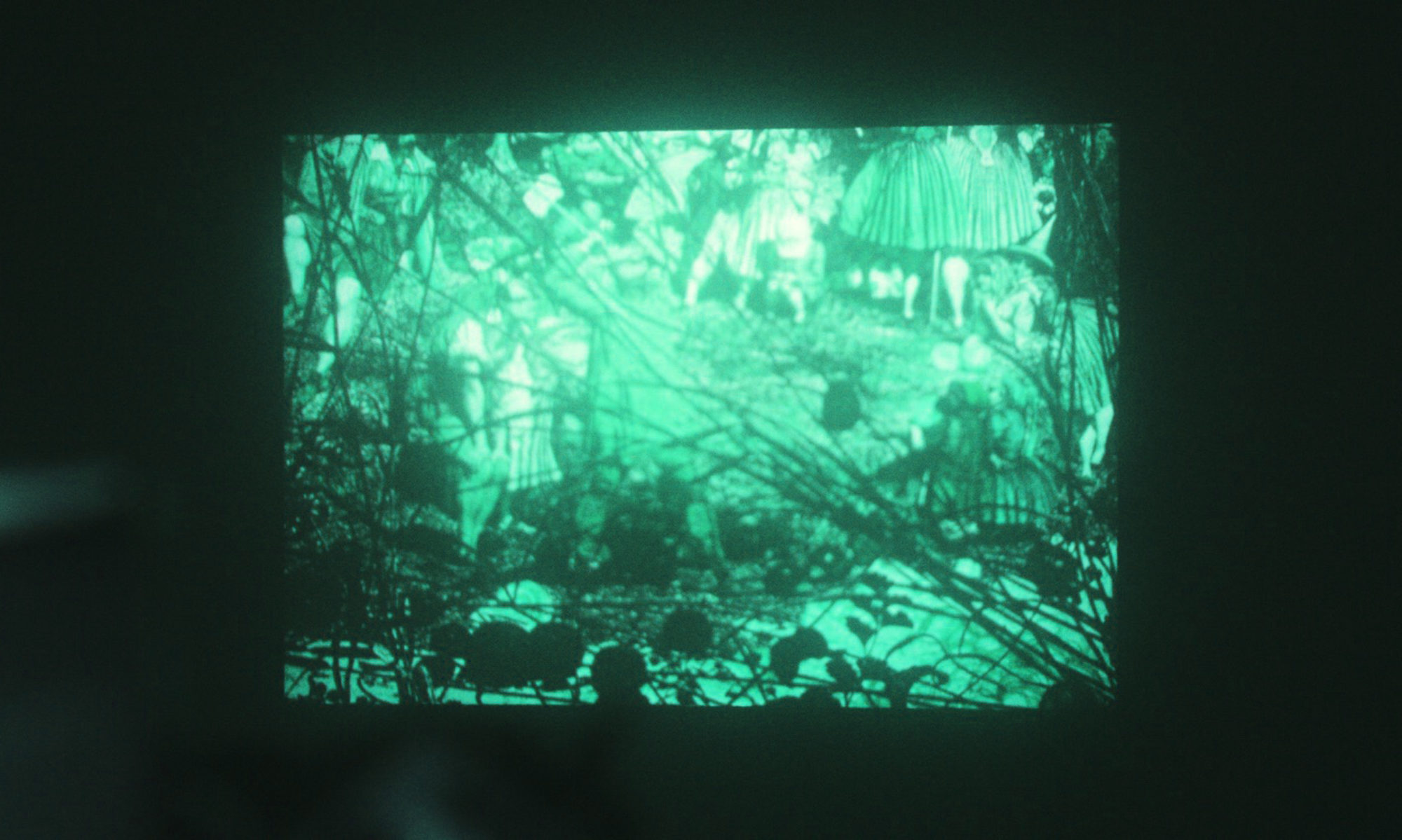Back to it! A brief summary of our conversation yesterday. Brisk, brisk — a mnemonics of the occasion…
So we reconvened. And, reversing our pattern from last week, we launched with Stendhal, and moved only to Metahistory after the break.
Part II of La Chartreuse de Parme. That was where we focused. But having now completed the book, we were newly in a position to assess it in its totality.
So in we went, for a close look at a key moment: Chapter 16, and Mosca’s encounter with the Duchess in her new post-Fabrice-imprisonment mode. We read. And we thought. And we talked.
We considered the insides and the outsides of these characters, and the way they are depicted as inhabiting themselves and the world. Mosca, the consummate courtier. (But is that all he is, in the end?) The Duchess, a flame of brilliance, whose spontaneity and capacity for the gesture (for theater, for cutting the figure) gives her an affinity for the “Romantic” mode, even as she can seem so quick (of wit, of thought, of decision) that she seems, sometimes, to me, to be getting around herself before she is permitted to be herself — whatever that might mean. (One thinks of Wallace Stevens’ Theory: “One is not duchess / A hundred yards from a carriage”; and then one thinks that this might function as an epigram for the whole novel — but only if one were to put a question mark at the end of the couplet…)
In discussing this (heart-breaking, if you are fully immersed in the story at this point) section in Chapter 16, we ended up focusing on the passage in which the Duchess details her sense of Fabrice’s special perfection:
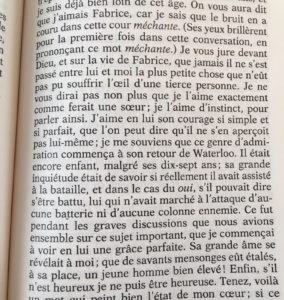
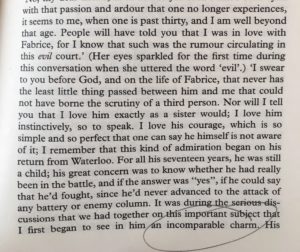
We found ourselves puzzling over the ways that the Duchess seems to find a certain kind of awkward failure-to-self-cognize-in-context as Fabrice’s “grace.” It is a strange idea. With implications for the status of “self knowledge” and “interiority” in this book. (Those of you who are interested in pursuing the intellectual-historical context for this fascinating problem, should try Jan Goldstein’s superb book, The Post-Revolutionary Self: Politics and Psyche in France, 1750–1850; you could get a sense of what is going on in the book from this strong review by John Carson).
This line of inquiry took us across to another extraordinary moment in the text: the Duchess’s peculiar moment of self-and-Fabrice knowledge (but is it that?) that irrupts at the close of her encounter with the poet-assassin Ferrante Palla in Chapter 21:
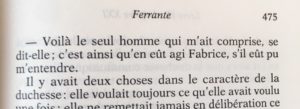
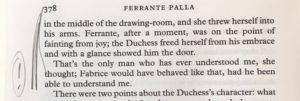
Do with this what you will. At the very least it tells us exactly what it says: that the author wishes us to understand that the Duchess understands Fabrice to be incapable of understanding her. Is this what she was saying in Chapter 16 as well?
Before the break we took a turn through the question of gender in this book, and specifically the question of whether its use of the structuring norms of gender-identity effectively cut us off from some aspect of “pleasure” in the text. Or that was my question. Jeff offered, I thought, an affecting invocation of what it is when a text can resonate with questions put to it from outside of its ethical and historical “frame.” He feels this one can, on this matter. And it may be so.
* * *
We took our break, and when we came back we talked a bit about the “Punctum Exercises.” I am going to go ahead and post a PDF of mine here (click on image to open):
These should in no way be taken to be normative. They are, I fear, in important ways, not that great. But since we are asking you to do something a bit odd, it feels important to get out in front of this a bit, and offer you an example of what plausible experimentation in the idiom can look like.
And I want to say here again what I tried to express in our meeting: for me, I certainly feel myself thinking my way into Burckhardt in a very particular way when I know I have to try to “reproduce” his style (of thought, of voice).
That is what we are aiming for here, and the work we did with Hayden White after the break (especially the close look at the section on “History and Poetry” in Chapter 6), came out of that struggle.
Keen to see what you made of the Burckhardt yourselves!
-DGB
